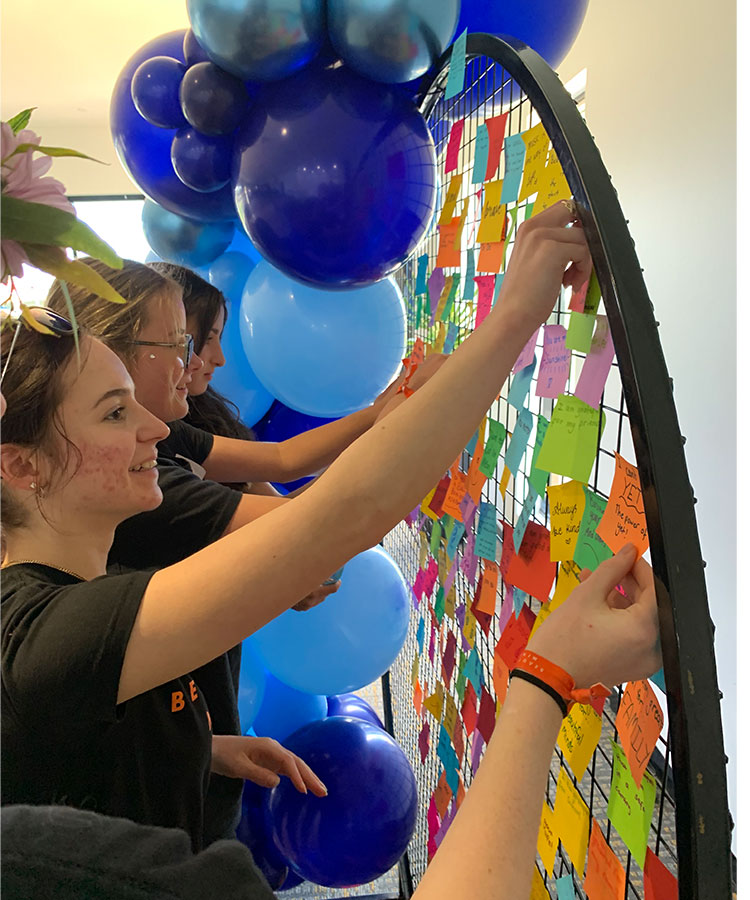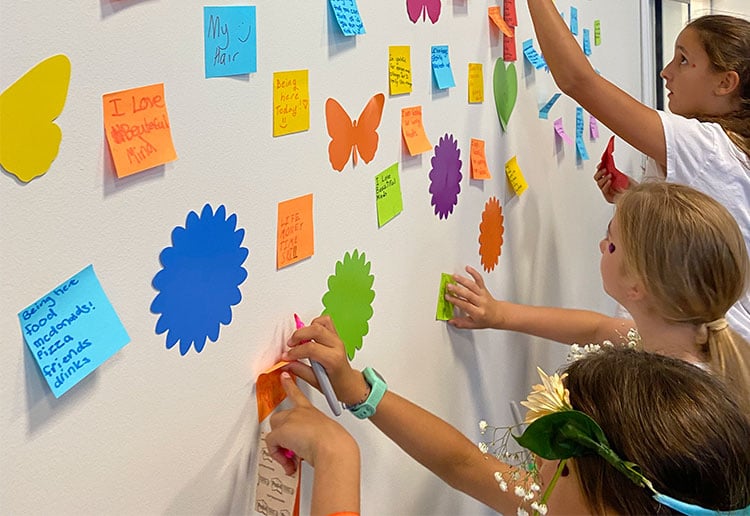Technology was a saviour during Australia’s pandemic lockdowns especially in terms of connection and learning. However, for children and, in particular, teens, this unique situation has seen screen time skyrocket, surpassing any limitations previously set by parents.
Marina Passalaris, founder and CEO of youth mental health service Beautiful Minds, says it’s important to help children reset and find a healthy balance with screens post lockdown. “During lockdown it was not uncommon for children to log out of online classrooms and go straight onto digital devices, be it mobiles, iPads or gaming devices, to relax and connect with friends,” she explains. “While this connection was important, it meant kids’ screen time became excessive.”
American figures published Monday in JAMA Pediatrics found that screen time outside of virtual school among US teenagers doubled from pre-pandemic estimates of 3.8 hours per day to 7.7 hours. With Australian teenagers having similar access to digital devices, social apps, streaming services, and gaming stations, these numbers would be reflective of Australian teenagers’ usage.
Australian parents now face the unenviable task of trying to put the genie back in the bottle. Post-it® Brand by 3M found that 65% of Australian students who have been studying online at home in the past three months felt that being locked to their computer was affecting their overall wellbeing. This was impacting their motivation and energy levels as well as their ability to collaborate and think creatively.
“Home schooling was a necessity and while that associated screen time is not inherently toxic, it can have detrimental effects. If it impacts on academic performance, sleep, relaxation and overall wellbeing then it is important that teenagers are alerted to what that screen time is replacing,“ says Marina. “Parents should now be looking for ways to start rolling back that dependence on digital devices to seek balance.”
“Simply putting in new restrictions and aggressively policing them is not only unrealistic, it’s counterintuitive in terms of stress and anxiety for everyone, as conflict is inevitable in this scenario.”
Marina’s suggestion is to tackle the start of the day first, making mornings a device-free time.
“The first few hours of the day are crucial to overall human wellbeing. It is a case of ‘win the morning, win the day’. Get this right and everything pulls into line on a biological level,” explains Marina.
Here, she offers some principles for families to remember:
SUNLIGHT AND SLEEP
It’s super important for us to get direct sunlight on our eyes upon waking, even on cloudy days. It sets our biological clock and triggers the neural circuit that controls the timing of cortisol and melatonin. Those hormones dictate the effectiveness of our sleep. With poor sleep, we have poor memory, mood disorders, lowered immunity, and our blood sugar regulation is affected, which is key in terms of emotional regulation for teens and overall health.
MANAGE DOPAMINE
Dopamine is a neuromodulator that influences motivation, mindset, drive and craving. Experience of life and motivation or drive is relative to how much dopamine you have at any given moment.
It is critical to keep our dopamine balanced throughout the day. If it spikes, then it naturally must dip equally. When it is depleted, we need a full night’s rest to replenish. Once depleted we languish through the day and derive no pleasure from our activities.
The Post-it® Brand survey also discovered that 69% of those working or studying from home found it hard to stay motivated and energised, and it’s likely that this feeling is directly related to excessive screen time.
Unfortunately, our devices, apps, and games have all been designed to take advantage of our dopamine system. They’re all addictive.
When we wake up and reach for our gadgets, not only do we interfere with the natural downloading of information that needs to occur after a night’s rest and dreaming, but we can quickly exhaust our day’s dopamine supply. You’ve essentially short-circuited your body’s natural goal-setting and reward system.
ACTIVATE AIRPLANE MODE
The solution is to hit airplane mode on our devices. Our children’s mornings need to become sacred and purposeful family time again. Without morning rituals or routines, we lose our anchors and the feeling of control over our worlds. There is also a loss of belonging and a sense of connection with the people around us. Add them to the issues listed above and is there any wonder we have such poor mental health outcomes in our communities?
Top Tips For Rewinding Family Screen Time After Lockdowns
Try these tips to implement Airplane Mornings in your home:
- Ask your children to leave their phone on the kitchen bench overnight so they don’t reach for their device first thing, or worse still, “check in” on their social channels in the middle of the night, interrupting their sleep patterns and circadian rhythms.
- Fill the morning device time with something positive, such as starting the day with an early family walk/run, or taking the dog for a quick walk. It’s all about getting moving to avoid the temptation of sitting and reaching for the device.
- Sit down at the breakfast table together and write down your plans or key reminders on Post-it® Notes. The actual process of writing means everyone will better remember what is required and will take greater ownership. It’s a contract of sorts. I also use Post-it® Notes to write positive affirmations in our Beautiful Minds sessions. Not a bad way to start the day either!

“If we can carve out that time for nourishment and sacred family time and stay off these devices till at least the time our workday or school day starts, we’ll be working toward having happier, stronger, and kinder families,” says Marina.
Marina Passalaris, CEO of Beautiful Minds is one of the experts featured in a Post-it® Brand Masterclass series to be released across Post-it® Brand social channels later this year.





















7:00 pm
7:18 pm
8:36 am
11:19 pm
1:22 pm
7:54 pm
3:44 pm
12:45 am
12:22 pm
12:23 pm
9:42 am
8:03 am
4:02 am
2:50 pm
8:18 pm
- 1
- 2
- »
Post a comment